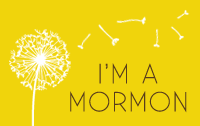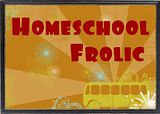First, I did a lot of frontloading. I started by reading the two books pictured below.
 Up the Learning Tree by Marcia Vaughan is about a slave boy who is required to walk his young white master to school and back every day. The slave boy realizes that if he is up the nearby tree, hidden in the leaves, he can hear the teacher and see what she writes on the board. He then practices his letters by carving them into the tree.
Up the Learning Tree by Marcia Vaughan is about a slave boy who is required to walk his young white master to school and back every day. The slave boy realizes that if he is up the nearby tree, hidden in the leaves, he can hear the teacher and see what she writes on the board. He then practices his letters by carving them into the tree.The risk, of course, is great if he gets caught (which he eventually does). My children were captivated by the story and it provided a perfect gateway to talking about why he would risk so much just to learn to read.
 Liberty Street by Candice Ransom is another book about a young slave risking a great deal to learn to read. In this story, a free black woman forms an underground school for slaves in her town. All the children who attend this school take an incredible risk to learn. My favorite part of this book is that it showcases the power reading gives to people, but also that slaves used a variety of methods to take power. The mother of the young slave who is learning to read uses her washing to signal runaways that a boat is ready to take them across the river to safety. The kids and I talked about how learning to read helped the slave girl broaden her options and understanding and ability to escape, while her mother's bravery (despite not knowing how to read) helped numerous other slaves.
Liberty Street by Candice Ransom is another book about a young slave risking a great deal to learn to read. In this story, a free black woman forms an underground school for slaves in her town. All the children who attend this school take an incredible risk to learn. My favorite part of this book is that it showcases the power reading gives to people, but also that slaves used a variety of methods to take power. The mother of the young slave who is learning to read uses her washing to signal runaways that a boat is ready to take them across the river to safety. The kids and I talked about how learning to read helped the slave girl broaden her options and understanding and ability to escape, while her mother's bravery (despite not knowing how to read) helped numerous other slaves.After reading those two books, we talked about Frederick Douglass and how learning how to read affected his ability to remain a slave. My son was excited about that because he played Frederick Douglass in one of our mini-plays and his big line was, "I can read, I can think, I will be free!"
Reading the books and discussing them were helpful but I really wanted to drive the point home that reading=power. Julie and I decided to meet at her house for a scavenger hunt with prizes (books, of course) for the kids who could reach the end of the hunt. Julie wrote the clues, however, in morse code. We picked morse code because my daughter already knows how to read so English was out. Also, picking a different language would make it really hard for the kids to unscramble the message. With an older child, a different language would work well, but not with our youngsters.
Julie wrote the clue on a big bulletin board and then wrote a smaller morse code explanation sheet. We told the kids that there was a great prize for them if they could find it and then we told them the first clue was on the table. The kids ran off, excitedly, only to weep and wail minutes later when they saw the morse code. We took a few minutes to talk to them about how the slaves must have felt, seeing a map but not being able to decipher it. Then we pointed out how they might decode the message and they took it from there.
They were very, very proud when they got the message all decoded and found the prize. Overall, the activity was a good one for really driving home the point about reading giving you access to information (power).




































